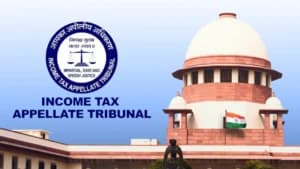In a significant development, the Kerala High Court has referred a crucial legal question to a Full Bench—can a Hindu wife claim maintenance from her husband's immovable property dehors the Hindu Adoptions and Maintenance Act, 1956? This issue arose in Mat. Appeal No.1093 of 2014 (Sulochana v. Anitha and Ors.), where a Division Bench comprising Justice Sathish Ninan and Justice P. Krishna Kumar deliberated on divergent judicial interpretations in previous rulings.
The matter originates from a matrimonial appeal filed by a bona fide purchaser of a property initially owned by the husband (second respondent). The sale had occurred before the wife (first respondent) filed a claim for maintenance. However, after the maintenance order was passed, the Family Court attached the property. The petitioner sought exemption, asserting he purchased the land before any maintenance claim was instituted.
The Family Court in Thiruvananthapuram dismissed the purchaser’s claim, affirming that the wife was entitled to enforce her maintenance right against the property. It held that she had a charge over the property, relying on the precedent set in Ramankutty v. Amminikutty (AIR 1997 Ker 306).
Read also:- MP High Court Upholds Minor Girl’s Choice to Continue Pregnancy, Bars Stay with Accused Partner
The appellant's counsel argued that the Hindu Adoptions and Maintenance Act, 1956 does not explicitly grant the wife such a right. He cited Vijayan v. Sobhana (2007) to contend that Section 28 of the Act only applies to dependents, which excludes wives of living husbands.
The Division Bench acknowledged a conflict in previous decisions from the Kerala High Court itself. For instance:
“There are conflicting views expressed by different Division Benches of this Court on the issue, hence the matter requires to be referred to a Full Bench for an authoritative pronouncement.”
The Bench scrutinized precedents like Sathiyamma v. Gayathri (2013), Nysha v. P. Suresh Babu (2019), and Hadiya (Minor) v. Shameera M.M. (2025) which suggest that Section 39 of the Transfer of Property Act allows wives and children to enforce maintenance rights against transferred properties if the transferee had notice or if the transfer was gratuitous.
Read also:- Magistrate Can Directly Entertain Criminal Complaint Without Prior Police FIR: J&K High Court Clarifies
Quoting Hindu Legal History and Smritis
In its extensive analysis, the court revisited historical interpretations of Hindu law. It cited ancient texts and judgments such as:
“Through her marriage a Hindu woman... acquires an interest in her husband’s property... enough to entitle her to an equal share with sons when her husband makes a partition of his property.” (Lakshman Ramachandra v. Satyabhama, 1877)
The court also evaluated conflicting precedents from various High Courts like:
- Pavayamal v. Samiappa Goundan (Madras High Court)
- Banda Manikyam v. Banda Venkayamma (Andhra High Court)
- Sarwan Singh v. Jagir Kaur (Punjab & Haryana High Court)
- Basudeb Dey Sarkar v. Chhaya Dey Sarkar (Calcutta High Court)
Read also:- Delhi High Court to Hear YouTuber Mohak Mangal’s Plea to Transfer ANI’s Copyright Suit to IP Division
Statutory Interpretation of Hindu Adoptions and Maintenance Act, 1956
The judgment clarified that Section 18 of the Act mandates a husband’s personal obligation to maintain his wife during his lifetime. However, it does not create a right over his immovable property.
“Section 18 imposes a duty on the husband to maintain his wife... but does not confer any proprietary right upon the wife in such resources.”
Further, Sections 27 and 28 deal with when maintenance becomes a charge and how transfers affect that right. Notably, the term “dependants” under Section 21 excludes the wife of a living husband, thus creating ambiguity about her rights over immovable assets.
The court also referenced Section 39 of the Transfer of Property Act, emphasizing:
“It does not create a right in itself but allows enforcement of an existing right over transferred property, if such a right exists under substantive law.”
Read also:- Supreme Court Grants Interim Protection to Actor Shreyas Talpade in Multiple Cheating FIRs
Why the Issue Needs Full Bench Resolution
The court highlighted that many of the precedents upholding a Hindu wife's right over her husband’s property were based on pre-1956 customs, ancient texts, and Smritis, not statutory law. Since the Hindu Adoptions and Maintenance Act, 1956 codifies and overrides ancient Hindu law through Section 4, it is crucial to determine:
- Whether these earlier principles still hold legal force.
- Whether maintenance rights can exist outside the Act, especially when the husband transfers property to avoid responsibility.
The court framed two essential questions for the Full Bench:
(a) Is a Hindu wife entitled to receive maintenance from the immovable property of her husband dehors the provisions of the Hindu Adoptions and Maintenance Act, 1956?
(b) Is there not an apparent conflict between the views expressed in Vijayan v. Sobhana and Others, Sathiyamma v. Gayathri and Others, Nysha v. P.Suresh Babu, and Hadiya (Minor) v. Shameera M.M., and what is the correct law?
Case No: Mat.Appeal No.1093 of 2014
Case Title: Sulochana v. Anitha and Ors.
Counsel for the appellant: S.Balachandran (Kulasekharam), V.R. Gopu
Counsel for the respondents: K. Satheesh Kumar, T.A. Unnikrishnan for R1; G. Krishnakumari for R2
Amicus Curiae: T. Krishnanunni (Senior counsel)















